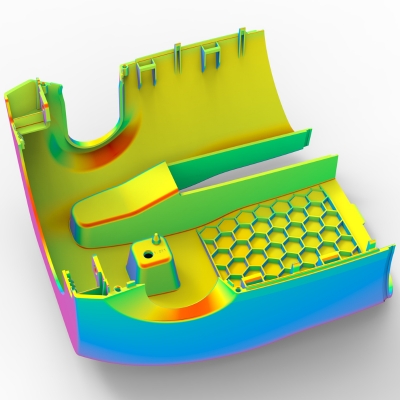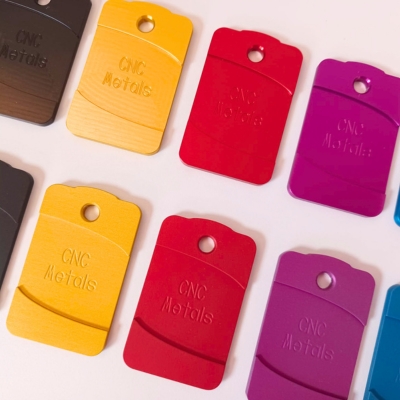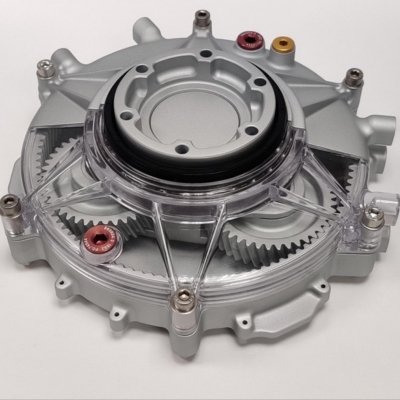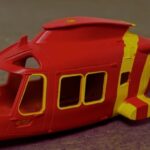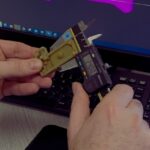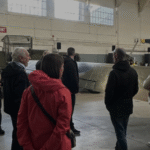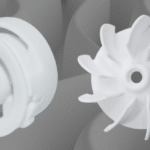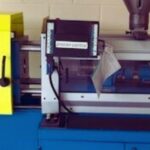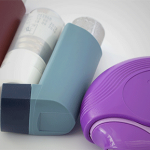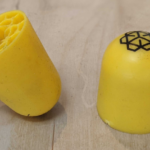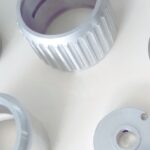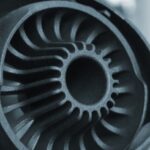- Home
- CNC Machining
- A Guide to CNC Machining Tolerances: What You Need to Know
A Guide to CNC Machining Tolerances: What You Need to Know
CNC machining is an essential part of modern manufacturing, enabling the production of precision components with a wide range of applications. For design engineers, product designers, and mechanical and industrial engineers, understanding CNC machining tolerances is critical to ensuring that parts meet functional and performance requirements. At Prototype Projects, we aim to provide high-quality CNC machining services, and this guide will explain the essentials of CNC machining tolerances and their impact on your designs.
What Are CNC Machining Tolerances?
CNC machining tolerances refer to the permissible variation in a part’s dimensions. No machining process can create a component with absolutely perfect dimensions due to tool wear, machine calibration, and material properties. Therefore, tolerances define the acceptable deviation between the specified dimension in a design drawing and the actual dimension of the machined part.
Tolerances are typically represented as ± values, indicating how much larger or smaller the final part’s dimension can be compared to the nominal dimension. For instance, a tolerance of ±0.1 mm allows a deviation of up to 0.1 mm from the specified dimension.
Why Are Tolerances Important?
Tolerances play a crucial role in ensuring that parts fit together properly, perform their intended function, and meet safety and durability standards. If tolerances are too loose, components might not fit or function as required. Conversely, if tolerances are too tight, parts may be overly expensive or difficult to manufacture.
By understanding and specifying appropriate tolerances, engineers can balance performance, cost, and manufacturability.
Types of CNC Machining Tolerances
There are several categories of tolerances, each with its own importance depending on the application:
Dimensional Tolerances
These refer to the allowable deviation in linear dimensions such as length, width, and height. Dimensional tolerances are crucial for ensuring that parts fit properly within an assembly.
Geometric Tolerances
Geometric tolerances control the form, orientation, and position of features. This includes flatness, circularity, parallelism, and perpendicularity, ensuring parts maintain their functional geometry.
Surface Finish Tolerances
Surface finish or roughness tolerance affects how smooth or textured a part’s surface will be. Surface finish tolerances are essential in applications where friction, wear, or appearance are critical factors.
Positional Tolerances
These tolerances control the location of features like holes or slots in relation to other features on the part. They ensure accurate alignment and functionality of assembled components.
CNC Machining Tolerances at Prototype Projects
At Prototype Projects, we offer CNC milling and turning with high-quality results and tight tolerances. For CNC milling, our standard machining tolerance is typically ±0.1 mm, but we can achieve tighter tolerances based on project specifications and material requirements. Our 3-axis and 4-axis CNC machining capabilities allow for complex geometries and high accuracy in machined components.
We encourage customers to contact us during the design phase to discuss tolerance requirements. In some cases, tighter tolerances may be needed for critical features, while looser tolerances may be sufficient for non-critical areas, helping to reduce costs and improve manufacturability.
Factors That Affect Machining Tolerances
Several factors can influence the achievable tolerances in CNC machining:
Material Properties
Different materials exhibit varying machinability characteristics. Harder and more stable materials like aluminium and steels generally hold tighter tolerances compared to softer or less stable materials such as some plastics, which can be more susceptible to deformation and variability depending on their specific type. While machining softer materials, achieving precise tolerances can be challenging due to their inherent properties.
Part Complexity
The complexity of a part’s geometry can also impact tolerance. More intricate designs with multiple features may require additional machining steps, potentially affecting the overall tolerance.
Thermal Expansion
The heat generated during machining can cause the material to expand, which may affect the final dimensions of the part. This is especially important in precision applications where temperature control is critical.
Other factors
In addition to the above, tool wear and machine calibration can affect machining tolerances. That’s why we stock a large supply to tools and regularly maintain our machines to ensure they continue delivering excellent parts, time and again.
How to Specify Tolerances in Your Designs
When specifying tolerances in your designs, it’s essential to balance precision with practicality. Here are some best practices:
Identify Critical Dimensions
Tight tolerances should be applied only to critical dimensions where accuracy is crucial for part functionality. For non-critical features, looser tolerances can help reduce machining costs and lead times.
Consult with Your Machining Partner
Early communication with your CNC machining provider is key. Discuss your design, tolerance requirements, and the intended application to ensure the most cost-effective and manufacturable solution. Our friendly team is always happy to discuss specifics, so please contact us.
Use Geometric Dimensioning and Tolerancing (GD&T)
GD&T provides a standardised way to define tolerances for the geometry and orientation of features, improving communication between designers and manufacturers.
Conclusion
Understanding CNC machining tolerances is vital for engineers and designers looking to create functional, manufacturable, and cost-effective parts. At Prototype Projects, we work closely with our customers to ensure that the appropriate tolerances are applied, resulting in high-quality, precise components.
Whether you’re developing prototypes or production parts, our CNC milling and turning services offer the accuracy and flexibility needed to meet your project’s requirements.
To learn more about our CNC machining capabilities or discuss your specific tolerance needs, visit our CNC Milling and CNC Turning pages, or get in touch with our team of experts.
Talk to us
Talk to us about your latest project. We can help you with any tolerance (or other) queries you may have. Contact us on 01763 249760 or request a quote.

